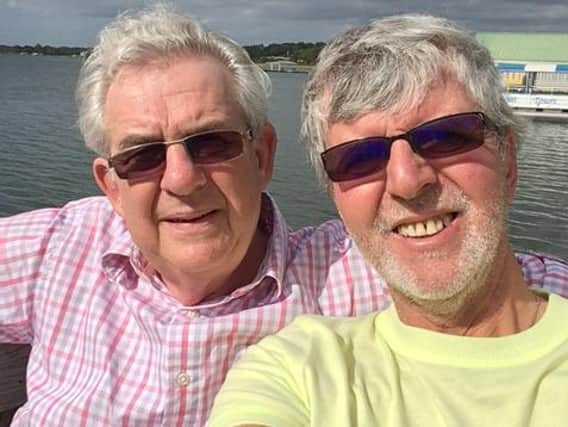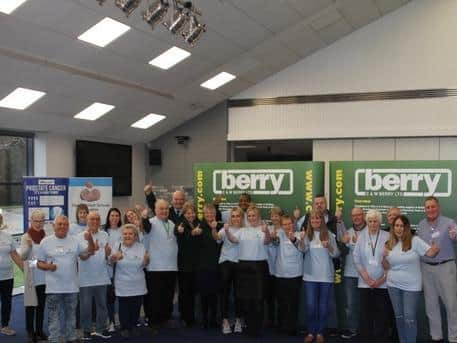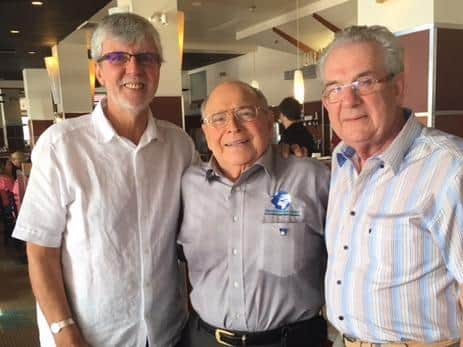The Walnut Group: Preston's prostate cancer support network saving and changing lives


Founded in 2010, The Walnut Group is a voluntary group open to prostate cancer patients and their carers, family, and friends. The second-most common cancer in the UK, prostate cancer will affect one in eight men in their lifetimes, with 129 people diagnosed with the disease every single day, amounting to 47,500 men annually. Networks like The Walnut Group are crucial.
“People wanted a meeting place in which they could share their experiences and mutually support one another,” says the group’s chair, Colin Piddington, 77. “Over time, we’ve built it up with the ethos of it being a new kind of social meeting in which people can discuss things like incontinence and erectile dysfunction and all the other things which people come across.
Advertisement
Hide AdAdvertisement
Hide Ad“Providing an environment built on mutual experiences is very effective and people have come up to me to say how the group has brought them out of some dark places,” adds Colin, who lives in Hoghton and has been involved in the group since 2010. “Everybody’s situation is different, so we offer a range of perspectives to help people along their own personal journey.


“When you’re told you’ve got cancer, all you hear is that one word, so making a decision on what to do next and whether to undergo things like surgery, radiotherapy, or active surveillance can be hard.”
George Turner has been part of the group since 2012 and agrees wholeheartedly with Colin. “The importance of nuanced support can be summed up very easily: after one guy’s first meeting, he came up to me and said ‘that’s the first time I’ve laughed since they told me I had cancer’,” says George. “Being with people who are either in or have been in the same situation is life-changing.
“It’s easy to think that the formula is ‘cancer = death’, but that’s not true; cancer just means a different journey,” adds George, 73, who lives in Lytham. “Going to the meetings was the best thing I did after my diagnosis, so to be a part of something like this gives me a lot of satisfaction, especially when we get people who’ve come to a testing session and subsequently been diagnosed.
Advertisement
Hide AdAdvertisement
Hide Ad“The important part is catching it quickly, which is why things like PSA testing is crucial,” George continues. “Knowing you’ve had a small hand in possibly preventing a situation where their case might have become more advanced is huge because treatment is far different to what they used to be. When I was diagnosed, my doctor said to me was ‘you’re going to die with it, not of it,’ which was reassuring.”


Prior to the Covid-19 pandemic, the group met on the first Wednesday of every month at Vine House on Cromwell Road, welcoming around 30 people to the meetings. But, with lockdown putting an end to their in-person gatherings, members have had to turn to phone calls and video chats to provide people with much-needed support.
“Offering that humanity is crucial, even if it’s over the phone, which is all we have at the minute,” says Colin. “It’s not the same as the meetings, but it’s better than nothing.” Once again, George is in concurrence, saying that the group is hoping to get back to in-person meetings as soon as possible.
“We really miss them,” says George. “The camaraderie is amazing and they’ve become a big part of a lot of people’s lives.”
Advertisement
Hide AdAdvertisement
Hide AdThe symptoms of prostate cancer include a frequent urge to urinate, difficulty starting or maintaining urination, pain whilst urinating or ejaculating, blood in the urine or semen, or difficulty getting or maintaining an erection. Colin or George can be contacted on 07891 521348 or 07743 825818 respectively for support.
Thanks for reading. If you value what we do and are able to support us, a digital subscription is just £1 per month for the first two months. Try us today by clicking here
Comment Guidelines
National World encourages reader discussion on our stories. User feedback, insights and back-and-forth exchanges add a rich layer of context to reporting. Please review our Community Guidelines before commenting.